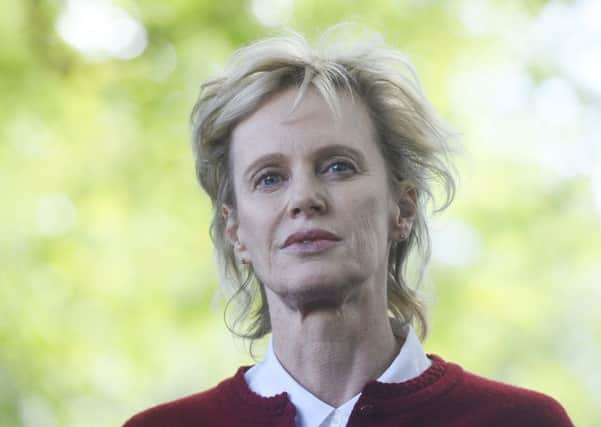Siri Hustvedt believes truth is less certain than we think


He was quite happy with that, and was pootling along, writing in his own slow, bitter way, on a novel that would take him the usual two years.
He and his wife had gone to bed that night convinced that Clinton would win, that the kind of blatant lying he’d seen over Brexit couldn’t possibly triumph twice when… well, you know the rest.
Advertisement
Hide AdAdvertisement
Hide AdHe knew he had to write fast, and what his book would be called. Everyone would want to call it that. There would be 400 novels about Trump at Edinburgh next August and they’d all be called Pussy.
His writing-fuelling rage wasn’t just about Trump; it was about the fact that people were impressed by him. “How could anyone be impressed by someone with so little perception or with so few words? I had more words when I was two weeks old.”
So he wasn’t just writing about politics; it was about culture too, about “what it’s like to be trapped in wordlessness, when 60 million people feel they can communicate with someone who has no real powers of communication at all”.
“If Trump doesn’t destroy us, in 20 years social media will,” he added. It’s even, he admitted, started to erode his own ability to relax. Even at dinner with his wife at their Soho attic flat – perfect evening, sunset, lovely food – he had his smartphone at the table. “Why?” he asked in mock perplexity. “I have no friends!”
But tweets, like Trump (or Fracassus, as Jacobson calls his infantile protagonist in Pussy) give statements rather than use language, denying our greatest gift. “Words breed other words, like a tree. One sentence sprouts another and we and the world meet in language. It’s the most creative thing we do, and not to have it is to be trapped in hell.”
Wasn’t that, asked chair Ricky Ross, damning Trump’s supporters? Certainly, said Jacobson, he didn’t want to add to polarities, nor would he call Trump supporters stupid. “But this isn’t about Trump, it’s us. And yes, we have to be like Prospero – ‘this thing of darkness I acknowledge mine’. We should beware of it within ourselves.”
He read from a passage in which Fracassus/Trump, told by his father not to encourage the violence at his meetings, truculently obeys. “Stop it,” he tells his followers, but so unconvincingly and so softly that it “sounded almost like an incitement”. He didn’t need even to mention Trump’s half-hearted condemnation of the Charlottesville racists. Real life had proved the sad, divisive truth of his fantastical satire.
Advertisement
Hide AdAdvertisement
Hide AdIf you had to design someone who embodies everything Trump hates – a cosmopolitan, artistic, mind-bendingly bright, eclectic, feminist critic, thinker and novelist, you’d probably come up with someone like Siri Hustvedt. And sure enough, no sooner had The Donald been inaugurated than she and her daughter were heading off to the Women’s March on Washington (“If nothing else, at least we took back the word ‘pussy’”).
As a public intellectual, Hustvedt’s approach differs from Jacobson’s dazzlingly snappy wordplay. She prefers, she said, “always to circle and question and interrogate the idea on which a belief is based”.
Take for example her discussion of CP Snow’s “Two Cultures”. Where Jacobson was a Leavisite to the core, one would have expected someone like Hustvedt, who has immersed herself in science, to take Snow’s side. But no: truth, she argued, is invariably more nuanced and less certain than we think.
There was, however, one subject in an engaging and wide-ranging discussion on which her certainty blazed bright. You’ve guessed it.
The American Psychiatric Association used to warn its members not to comment on the mental state of politicians. Hustvedt, who also lectures in psychiatry, has no such qualms. “The Hare Psychopathy Checklist lists 20 traits on how to recognise a psychopath. Trump’s got 18 of them.”